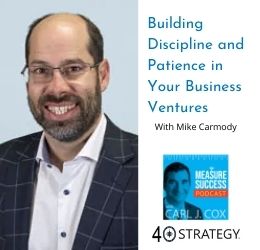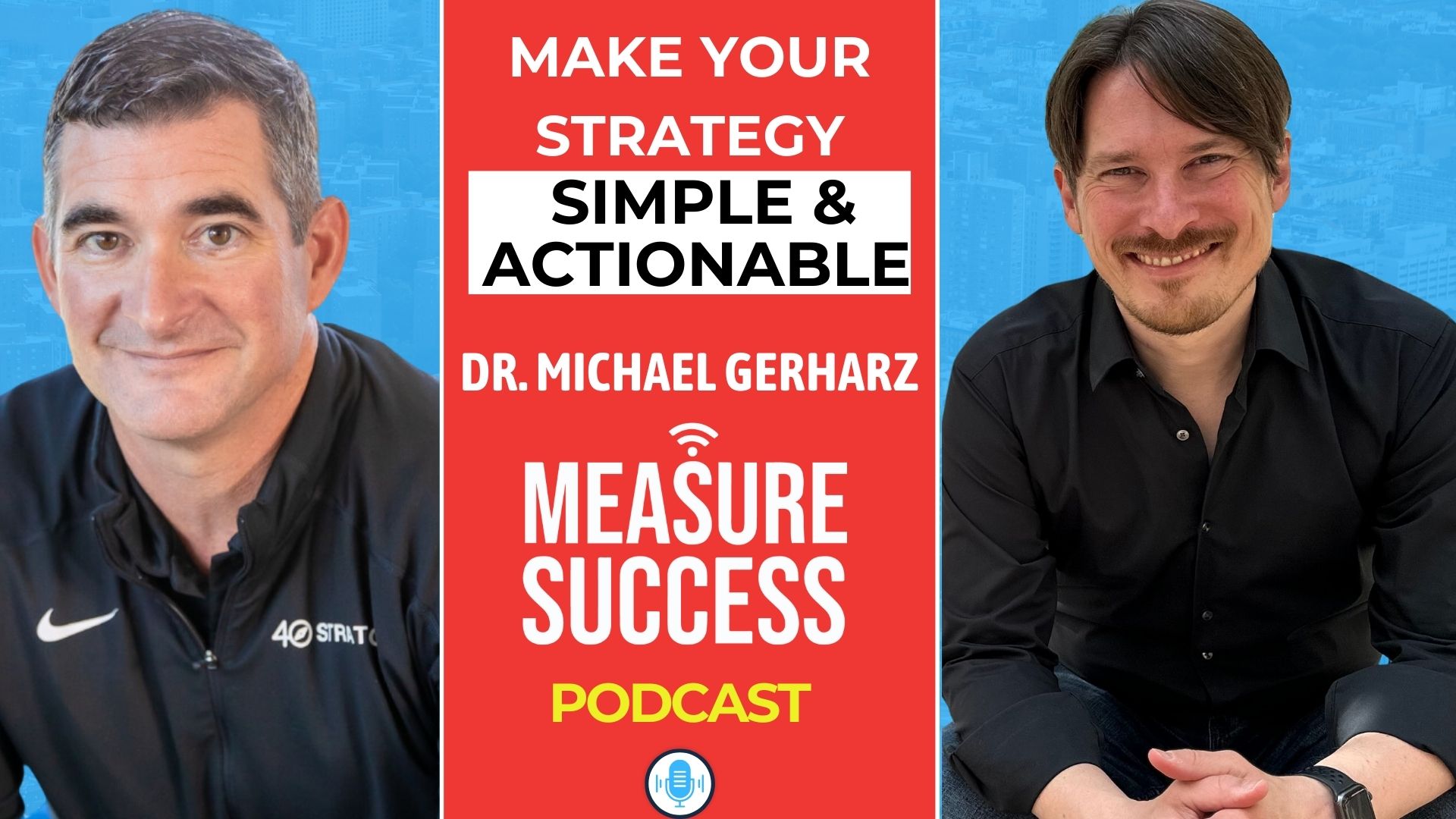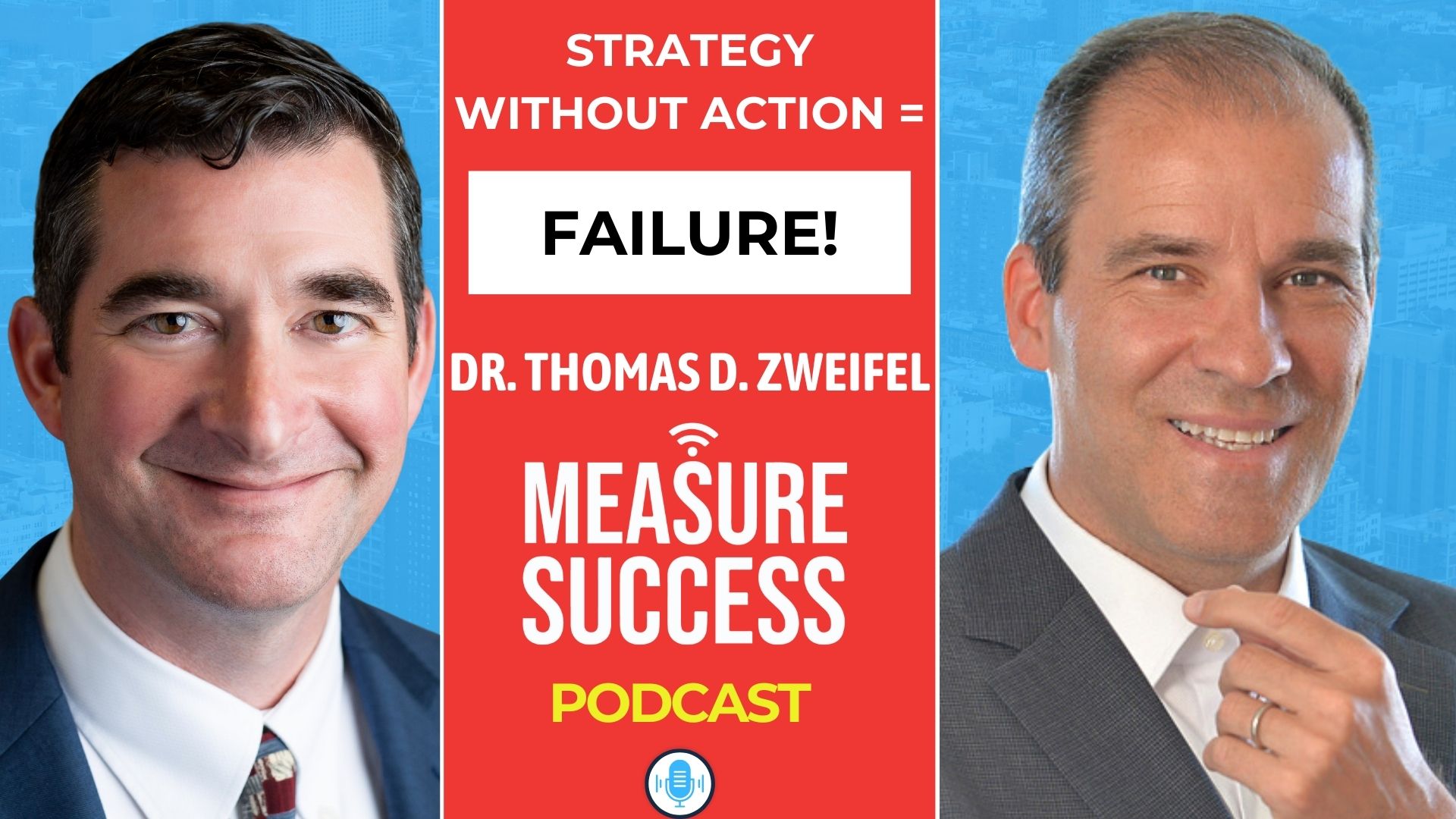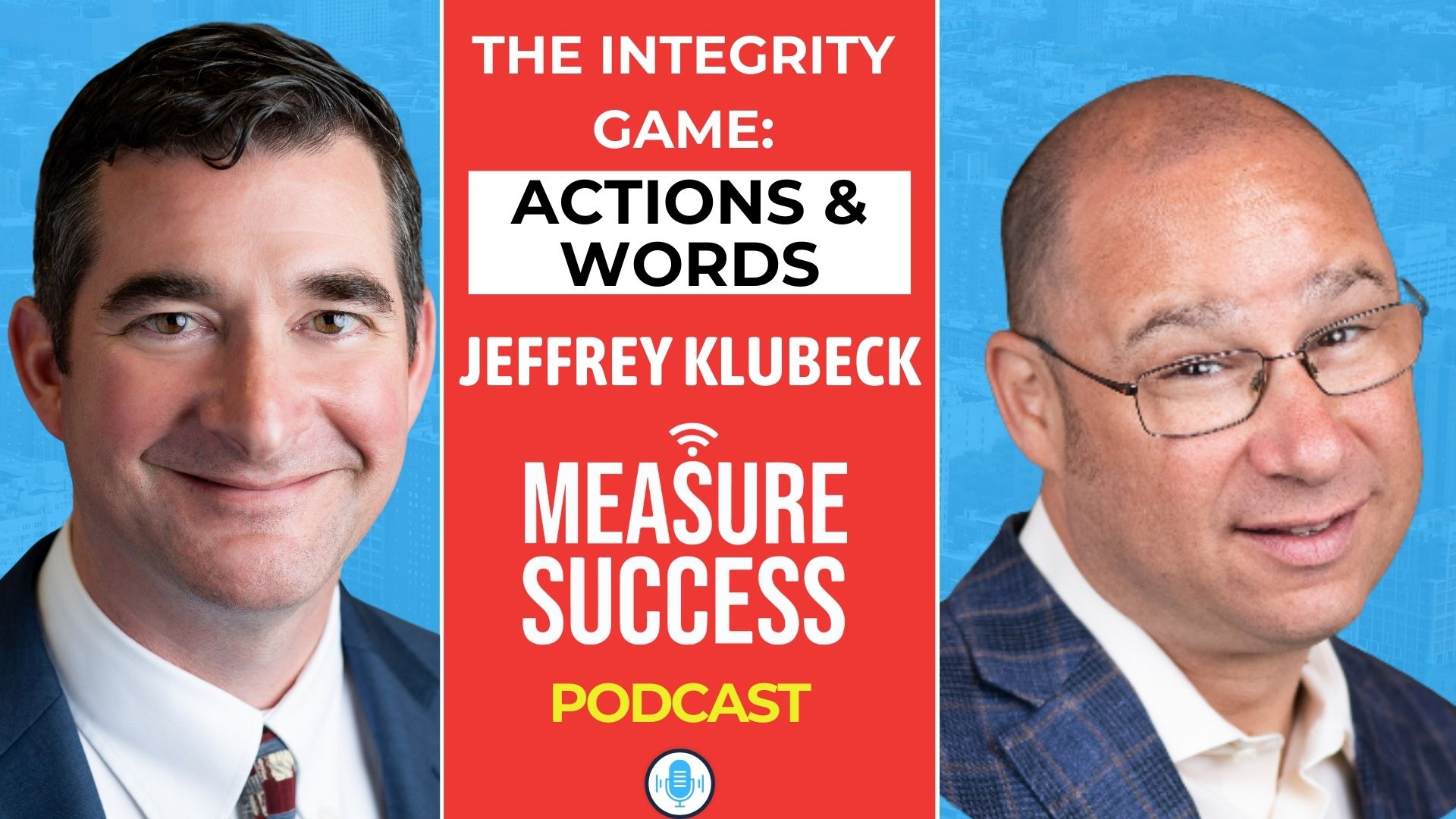Mike Carmody is the Owner of MudMixer, an innovative two-phase infusion system for mixing concrete, and the Owner of Red Dog Mobile Shelters, an aerodynamically anchored mobile tornado shelter. Mike is also a chartered financial analyst (CFA), a fellow of the society of actuaries (FSA), and a member of the American Academy of Actuaries (MAAA). He has been an instructor at SaltSolutions since 1998, guiding actuaries on all three levels of the CFA exam.
In addition to his entrepreneurial career, Mike instructs students and actuaries on how to pass the Investment and Financial Markets (IFM) Exam and Validation by Educational Experience (VEE) Exam at Coaching Actuaries. He is an avid runner and enjoys spending time with his family.
Here’s a glimpse of what you’ll learn:
- Mike Carmody details his experience starting a company and navigating the business world during a pandemic
- How is the MudMixer more effective than the traditional mixing process?
- The strategy for finding a distributor in the manufacturing world
- Mike talks about why he likes to develop business strategies
- Why success doesn’t happen overnight: discipline
- What keeps Mike grounded and focused on his business ventures
- Mike and Carl J. Cox discuss book recommendations and share some food for thought
In this episode…
When starting a business, it is more important to get it right than to be on time. It takes a great deal of patience to overcome the obstacles thrown at a new business. Mike Carmody knows this all too well — but how did he begin?
Before getting into business ownership, Mike always enjoyed the idea of innovation. But, he knows that great things do not happen overnight — you have to patiently follow the process. Through his work as an instructor and coach, Mike has developed a solid foundation in patience and success. He launched a new business venture during the pandemic and navigated the rough waves of productivity and manufacturing with a goal in mind.
In this episode of the Measure Success Podcast, Carl J. Cox talks with Mike Carmody, Owner of MudMixer, about the business cycle in the manufacturing world. Mike explains his passion behind starting a business and how he surrounds his business with qualified people to create value in the marketplace. Mike and Carl J. Cox also discuss impactful books and the lessons they provide. Mix smarter, not harder, in this episode.
Resources Mentioned in this episode
- Mike Carmody on LinkedIn
- MudMixer
- Good to Great: Why Some Companies Make the Leap…and Others Don’t by Jim Collins
- Just Do Something: A Liberating Approach to Finding God’s Will By Kevin DeYoung
- Start.: Punch Fear in the Face, Escape Average and Do Work That Matters by Jon Acuff
- Jon Foster on Measure Success Podcast
- 40 Strategy
- Contact 40 Strategy
- Carl J. Cox on LinkedIn
Sponsor for this episode…
This episode is sponsored by 40 Strategy.
40 Strategy provides strategic planning and consulting to help organizations realize and achieve their dreams by creating and measuring KPIs for success.
Unfortunately, most organizations only spend 2% of their time — or about 40 hours per year — on building an effective strategy.
Increasing the success of those 40 hours is what 40 Strategy does because your success is their passion — and that’s why organizations look to them for guidance.
Not only does 40 Strategy help you craft and implement an effective strategy, but they’ll also work to facilitate teams with proven practices and help with your scenario planning.
Harvard research shows that you can triple your success when you use the right Key Performance Indicators. Who doesn’t want that?
If you have questions, you can reach out through their website or email them at catch@40strategy.com.
Episode Transcript
Intro 0:03
Welcome to the Measure Success Podcast where we feature top leaders on how they measure success in their business and life. Now, let’s learn from their experiences.
Carl J. Cox 0:13
This is Carl J. Cox, the host of the Measure Success Podcast where we talk with top leaders about effective strategies that inspire success. This episode is brought to you by 40 Strategy at 40 Strategy, what we do is we help organizations come up with their strategic plan, and actually help them realize and achieve their dreams, Mike, basically, we help companies actually create that specific strategic plan for the first time. And then they actually measure the right KPIs for success. You may not be familiar with this, but only 10% of organizations actually complete two thirds of their strategic objectives. And I don’t know about you, Mike, but I thought that was pretty crazy when I heard that for the first time. That is pretty crazy. So with that, at 40 Strategy, your success is our passion. And so what we do is we help organizations come up with the right KPIs for success. Harvard Business Review says if you actually do the right KPIs and focus on them, you have a triple likelihood of being more successful than everybody else. So with that, if you want to connect us, you can reach us out, reach out at catch@40strategy.com or you may go to our website at 40strategy.com and with that, before we talk about our guests, Mike, we’re going to just do a quick little shout out to a mutual friend of ours whose name is Jon Foster, Jon Foster, you may remember from a previous podcast, I had challenged him to run our first marathon. And I’ll use this also opportunity to say, you’re gonna see a bunch of videos of raw footage of me doing messages that Jon Foster, as on the end of runs, and it’s pretty pathetic, but pretty funny and hilarious, all at the same time. So I hope you enjoy that that’s going to be pretty transparent and vulnerable. I’m not used to actually that part. And so anyways, I hope you enjoy all that that’s taking place. That leads us to our guests, Mike. And actually, Mike happens to be a running enthusiast as well. So we should have actually listened to Mike as we started training for this marathon. So what Mike? background experience is he has he’s a man of many trades. He’s the instructor at Salt Solutions, and Coaching Actuaries. He’s the owner of MudMixer and Red Dog Mobile Shelters. He has a math degree. And he’s been running coach for 14 years, an organization called sovereign grace running. And so with that, Mike, welcome to the show.
Mike Carmody 2:36
Great. Thanks for having me.
Carl J. Cox 2:42
You bet. So, Mike, tell us a little bit. We’re gonna talk about a few of your different businesses. Of course you have you said kind of top of mind for you right now is MudMixer and getting that business up and running. tell the audience a little bit more, what is mixer? And what do you do?
Mike Carmody 2:57
Yeah, MudMixer is a business venture I’ve been in for about three years. And so we have designed a concrete mixer that we think is a lot better than those barrel mixers that you see out there. With this barrel mixers, you have to throw the quikrete in there, throw the water in there, mix it up, then dump it in a wheelbarrow and then take it in the wheelbarrow where you want it to go. Well, a buddy of mine had came up with a better solution for that. So he pitched it to me. And so I took the idea and we turned it into a business. But it was a painstakingly slow business as most new ventures are. So we spent probably a year and a half just in the prototype stage, trying to figure out how can you make concrete mix better, because we wanted to make it easy for the users. We wanted to make it mix right all the time and just really save people time when they’re having to do these concrete jobs. But just getting concrete to mix right is a challenge. So that’s why we spent so long doing that. Then we had to figure out how to manufacture it. And all of this was relatively new for me because I had lived my world in spreadsheets, being an actuary by training, I love numbers, I love moving them around on a spreadsheet. Well that is super easy to do and super easy to make changes. But when you want to make changes to a concrete mixer, it takes a lot longer. You actually have a physical product there that you got to get to deal with. So that was a good learning experience for me of how long it takes to get a physical product to market but we actually have arrived and so we started selling it just a couple months ago. So we’re super excited to get it out there in the market and and see if it can help people when they’re mixing concrete up
Carl J. Cox 4:37
their concrete First of all, congratulations and and what a challenging part of getting a new business off the ground running especially as you said the physical part. You had mentioned earlier when we were kind of pre talking before is like a lot of things COVID has been a challenge with supply chain and getting things to ship so tell tell the audience A little bit about some of the challenges you’ve been facing, and how have you helped overcome some of those obstacles you’ve dealt with?
Mike Carmody 5:06
Yeah, it’s, it’s been quite the challenge. In fact, I went over to China in January of 2020, I went over there with Jon Foster said, we were over there together, we didn’t even know COVID was really a thing. And then we flew back, and I think it was just a week or two after we got back is when they shut down the flights to China. So we barely got out before that hit. So it was already I would say, a challenging business for me, just because I was new at it. And it was surprised how long things took to go from idea and concept to actual product. To then once COVID hit just everything slowed down. There weren’t as many workers at the factories, certainly the shipping was are well known with everyone. And that’s, that’s been hard. So I think it really taught us through a lot of patience. And so as if we hadn’t had some of those lessons before that it’s way more important in business to get something right than it is to get something early or on time. And so we were okay with that, that even though we couldn’t get the product made as fast as we wanted, we couldn’t get it shipped over here as fast as we wanted. We knew 10 years, 10 years from now, we’re not going to say Wow, we wish we had this in 2020 instead of 2021. That’s not going to make a difference. But what is going to make a difference is the product that we ultimately introduced to the market is correct. So I think I think we were okay, just to wait, it was also one of those things that was totally out of your control, we could not fix COVID, we could not fix the shipping problems, we could not fix the docking problems. So none of it was anything we could fix. So there wasn’t any point in worrying about it. Cuz because you just you couldn’t do anything about it, you just had to sit back and wait. So we tried to make it productive by then still working with the machine, tweaking it, making it better and better. So we tried to be productive there, but not stressing that we really were probably a year late in our launch compared to what we wanted to be. So that was okay. Um, cost went up dramatically in shipping cost as as they did with other people. But, you know, we just had to roll with those punches. So you can’t you can’t find a shipping company that’s going to give it to you cheaper. So you just you absorb that cost and you move forward. So that that was a challenge. But I would say the big lesson out of that was patience. And I think just in life in general, people have had to learn that lesson with COVID that you can make plans next month, but you have no idea if it’s going to happen. And so that’s exactly what happened in our business, that we can make plans. But we didn’t know we didn’t know if a tradeshow we were going to wasn’t going to happen or was it not going to happen? So you just had you just had to roll with it.
Carl J. Cox 8:00
I appreciate your story. We need to I did not remember the the January trip that john. Yeah, I didn’t realize you both went out there. And in March, I was actually in Washington DC and walking on the hill and doing lobbying for the manufacturing extension partnership. omap. And we were shaking hands with people. It was like the very beginning. And but it was interesting. The first stimulus package. We’re just getting signed. And we had met with Senator Merkley, we were meeting with him at the time, he had just just left the meeting with Vice President Pence, sorry for being late and we’re getting ready to sign our first stimulus. It was just at that time, some of the people said were starting to wash their hands or fist bump, like it was like it was that stage. And you know what, what, just a few weeks later, everything shut down. And I had eight trips, I think I canceled at that point. And it was pretty mind blowing. So I think that’s a really good learning lesson, right? Is is learning how to adopt and adjust to the things that we just can’t control. Yeah, and it’s not worth getting angry over it, even though we can and doesn’t know what’s going to change it. Right. And, and so then how do we adjust and I think helping to overcome those obstacles is huge. I’m curious about your product itself, once again, to help him for the listeners to think how much better faster quicker, more effective is your process tool compared to the standard methods that people are using?
Mike Carmody 9:27
Sure, sure. And full disclaimer, I’m biased that I think ours is a lot better. Of course, of course, in this business. What we did with the barrel mixer, you end up throwing stuff in there materials, batch mixing it and then putting in the wheelbarrow and taking over so you’re doing things in stages. What we were able to do with this mud mixer, is we were able to create a continuous concrete mixer that’s about the size of wheelbarrow so it never stops pushing out concrete. So we’ll do about a yard of concrete every hour or so. It’s about 4530 pound bags every hour, in all you have to do is just keep dropping the bag on top. Because Because we found there was just a lot of inefficiencies, and quite frankly, a lot of hard work as some people actually are mixing it in the wheelbarrow with the hoe and shovel and stuff. And that’s just back breaking work. But we set up something where literally, you’re just holding the quick grab bag at waist height, dropping it in that it splits it open, the dry powder goes in, you screw a water hose into it, you plug it in, and you just get a steady stream of concrete going out. So it’s almost like you have your little mini concrete mixer. That’s right on the job site, that you can just keep pushing that mix right into the the poor or the that you have there. So it really was designed to make it simpler. So you can now do a project that maybe it took three people before maybe it’s now a one person project. So it’s just a lot simpler. So it’s easier, and it’s faster. So it’s a we had one of our customers say it almost made doing Concrete Work fun.
[continue to next page]












